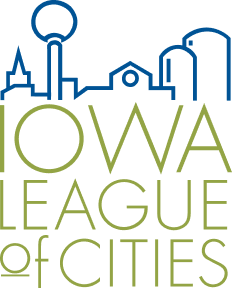| Relevant Downloads and Links | |
|---|---|
| Home Rule Special Report |
One of the pillars upon which local governments in Iowa stand is the law of Home Rule. In a basic sense, this law allows cities to govern and regulate themselves. However, there are significant restrictions that cities must adhere to, including not passing any local laws that are inconsistent with state law. Additionally, numerous court cases over the years have provided interpretations of the Home Rule law.
Until 1968, cities in Iowa struggled under what was known as “The Dillon Rule”, named for Iowa Supreme Court Justice John Dillon who ruled in a case in 1868 that city governments could only possess and exercise powers which were expressly granted by the legislature. Under the Dillon Rule, cities could only exercise those powers granted to them in the Code of Iowa. If the Code didn’t provide that a city could do a particular thing, the city couldn’t do it.
The Home Rule movement was a grass roots effort by cities to overturn the Dillon Rule and to claim for city residents their right to govern their own affairs through their elected city councils. The Home Rule Amendment to the Iowa Constitution, passed by Iowa’s electorate in 1968, provides that:
“Municipal corporations are granted home rule power and authority, not inconsistent with the laws of the general assembly, to determine their local affairs and government, except that they shall not have power to levy any tax unless expressly authorized by the general assembly. The rule or proposition of law that a municipal corporation possesses and can exercise only those powers granted in express words is not a part of the law of this state.”
Restrictions
Iowa’s form of Home Rule has two significant limitations. First of all, cities can tax their citizens only as “expressly authorized” by the Legislature. The Code allows cities to tax real property, but limits how much of the value of property is subject to taxation and the levy rate that may be applied to property values. The Code also allows cities to tax sales and use transactions, but again with limitations on the tax rate that may be applied to those transactions.
The second major limitation on the exercise of Home Rule power by cities is that they cannot exercise that power in a manner inconsistent with laws passed by the Legislature. In effect, the State of Iowa can, through its Legislature, pre-empt city exercise of local governance.
Court Cases
Iowa’s courts have on numerous occasions been called upon to address the exercise of Home Rule power by cities. While a number of the Iowa Supreme Court’s early Home Rule decisions upheld cities’ exercise of Home Rule authority, later decisions were premised on an implied preemption doctrine that threatened a reincarnation of the Dillon Rule. Those decisions were premised on the assumption that if a local ordinance prohibited an act permitted under state law, the ordinance was pre-empted. The result in these cases is difficult to reconcile with the Home Rule implementing legislation that allows cities to impose standards and requirements which are higher or more stringent than those imposed by state law.
Recent cases have been more encouraging. In upholding the city of Davenport’s adoption of an automated traffic enforcement ordinance (City of Davenport v. Seymour, 2008), the Supreme Court concluded that just because state law says that speeders and red light violators are to receive a criminal citation and pay a criminal fine, it does not mean that cities are prohibited from passing an ordinance providing that the owner of the violating vehicle could be charged with a civil infraction and be required to pay a civil penalty. A similar case (City of Sioux City v. Jacobsma, 2015) affirmed the Seymour decision as the Court again cited Section 321.235 as providing cities the ability to adopt additional traffic regulations not in conflict with the state code and found that the state code was not irreconcilable with the city’s ATE ordinance.
The citizens of Iowa have enshrined in their Constitution the expectation that cities will exercise their Home Rule powers to determine their local affairs and government. City officials therefore have a duty to use their Home Rule powers for the benefit of their citizenry. Not only must they resist challenges to their Home Rule powers, but they must also resist the temptation to seek explicit authority from the Legislature to act, when the Home Rule Amendment provides them all the authority they need.






